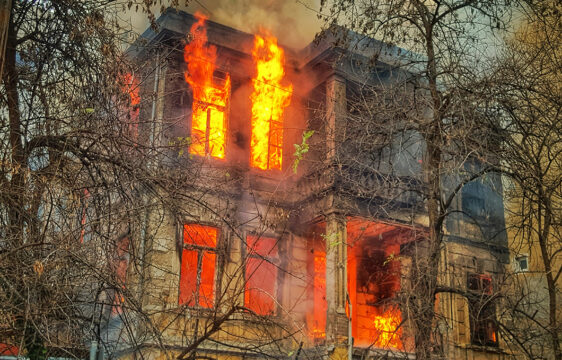In recent months, Maryland has seen a number of devastating apartment fires. In late March, eighteen families were displaced by a fire in a high-rise apartment building in downtown Baltimore, and two people were treated for injuries.
In mid-April, twelve families were displaced when a two-alarm fire broke out in an apartment building in Laurel, Maryland. And in mid-March, three people were hospitalized when a fire broke out in a Greenbelt, Maryland apartment building, and first-responders were forced to rescue numerous people—including those stuck on balconies—from the burning building. The reasons for the proliferation of apartment fires in Maryland and throughout the country are many; however, Fire Engineering Magazine blames at least some of these blazes on the widespread use of lightweight wood “toothpick” building materials in the construction of modern apartment buildings.
Regardless of the reason for the fire, apartment fires are devastating for tenants. Apartment fires can cause catastrophic injuries and death. They can result in widespread property destruction. And apartment fires can force people and families out of their homes. They can result in profound anxiety, stress, and trauma for tenants and those affected.
What should tenants know about their legal rights when an apartment fire affects them or their loves ones?
First, if a fire has caused injury, death, property damage, or other harm, it is imperative to determine the cause(s) of the blaze and who may be liable. For example, some apartment fires and the resulting damage can be the result of a landlord’s failure to comply with their legal obligations, such as the failure to maintain mechanical systems or install sprinkler systems. Apartment fires can also be the result of gas leaks, such as the 2022 blaze in Silver Spring, Maryland. Depending on who is at fault, an injured or displaced tenant may have a legal action. But acting quickly, determining cause and origin of the fire, and preserving evidence is critical.
Second, if a tenant’s apartment is uninhabitable, the tenant should promptly seek relocation. Tenants have a right to a habitable living environment. Depending on the cause of the fire, the landlord may be responsible for finding and financing relocation for affected tenants. Renter’s insurance may also cover some or all relocation expenses.
Third, in the event of property damage, a tenant should file a claim with their renter’s insurance company. While a tenant may be able to ultimately collect damages for fire-related property loss in a legal action, renter’s insurance should cover the loss of personal property and belongings in the interim.
At Joseph, Greenwald & Laake, we handle fire and explosion cases of all kinds, in Maryland, D.C., and nationwide. Legal actions arising from fires and explosions can be complex and lengthy. If you or a loved one has been injured or affected by a residential fire, you should contact experienced legal counsel to discuss your rights and available remedies.


